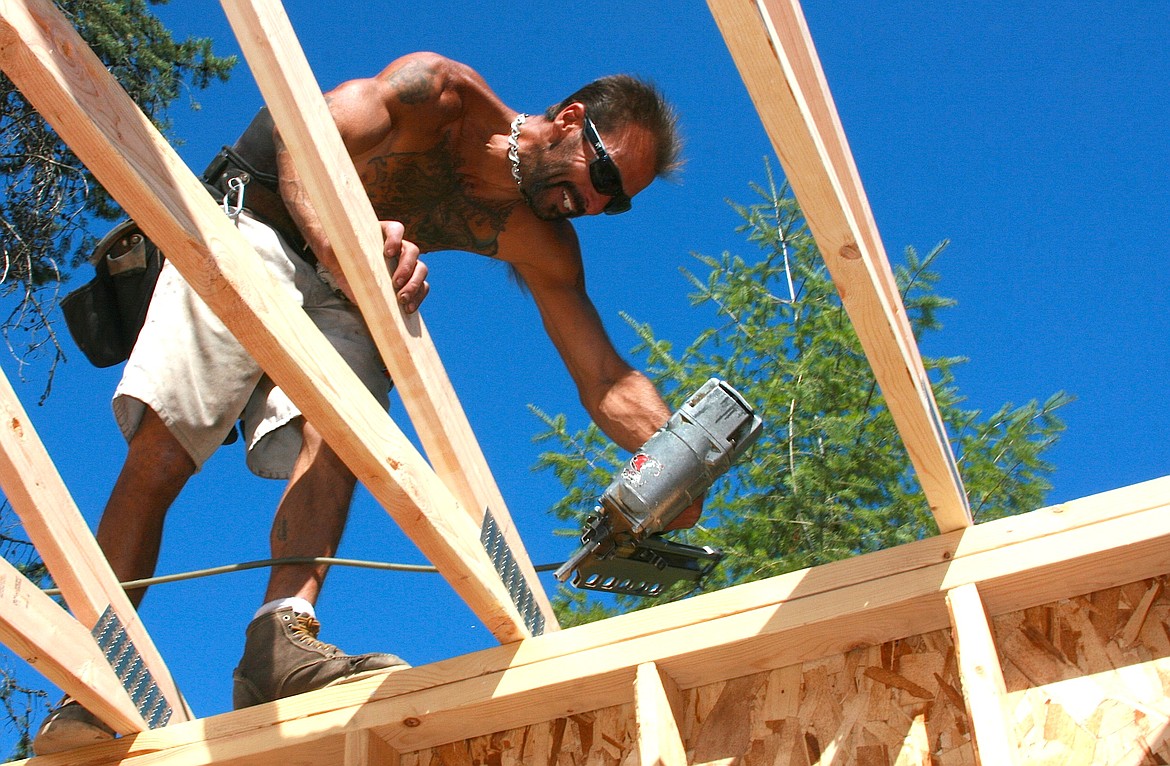City's sewer capacity hammered
By BRIAN WALKER
Staff writer
SPIRIT LAKE — If you like to see Spirit Lake grow, this is a real stinker.
The city's fast-paced growth in this sizzling economy will soon come to a halt due to the city's building permit moratorium, forced by the sewer system being at capacity.
The emergency moratorium on building permits that require a sewer connection is expected to last at least a year, until the city can explore funding options for an estimated $1.6 million in Phase 1 upgrades.
"At record best it will be August or September (next year) before the moratorium is lifted," Mayor Todd Clary told The Press.
Engineer Kevin Koesel, with James A. Sewell and Associates, which recently presented its findings to the City Council, said an estimated $3 million worth of improvements will be needed in the foreseeable future.
"The state likes us to plan for the next 20 years, so $3 million may get us to the point of being caught up with a little breathing room," he said.
Clary said the city will explore funding options, including loans, going to the voters with a bond proposal, or raising sewer rates.
"We've discussed a lot of different options, but we have not decided on anything," he said.
Spirit Lake's sewer rates are $26 per month and haven't been raised since 2006.
"If there's going to be any kind of raise, people will squawk," said Joy Porter, City Council member.
Spirit Lake residents are reacting to news of the building moratorium and sewer dilemma with mixed thoughts.
"I'm glad to hear about the moratorium because I was thinking Spirit Lake is growing too fast anyways," said Lisa Smith. "Some growth is fine because it keeps communities alive, but it's been growing just too fast for our own britches."
Smith said she'd understand if her sewer rate increases a little, but what she doesn't want to shoulder is a large amount all at once.
Lee Williams said he wonders if proper planning could have avoided what sounds to him like a "stinkin' mess."
"It's too bad that it has come to this," he said. "Growth helps keep communities vibrant and now it has to be turned away."
The four wastewater storage ponds north of the city are at their 50 million-gallon capacity, Clary said. The treated effluent is land-applied on sites adjacent to the storage area.
"The next step is a new lagoon," Clary said. "The sewage has to be stored for seven months out of the year because (Idaho Department of Environmental Quality) frowns on sprinkling the trees in the winter, so we've outgrown our capacity for that length of time."
The moratorium comes after the city has spent $1.5 million in upgrades funded by impact fees from new growth during the past two years and during explosive growth.
As of early August, the city had issued 78 building permits for new connections this year. It's the fastest growth spurt the city has ever experienced, Clary said.
"We're ahead of the bubble by 20 hookups," he said. "The growth was faster than we were ready for. We knew we were getting close, but didn't realize how close until we recalibrated our flow meter. When we did the math, it was, 'Oh wait a minute, those numbers don't line up.'"
Clary said a partial moratorium was implemented last spring, limiting growth to four total new connections per month and only one per builder. However, that was lifted after a short time when some builders threatened to sue the city on the grounds it impeded their business.
Koesel said adding capacity and other improvements has been a priority for the city, but growth is now outpacing the work.
"The past two years, the city has started to explode," he said. "We've been trying to keep ahead of it at the plant, but it's coming on faster than we can build. The city has not been sitting around and waiting. It's doing the best it can to manage it."
Clary described the need for wastewater capacity improvements as immediate.
"If we were to get record rainfall, that may put us into an emergency pump situation," he said.





